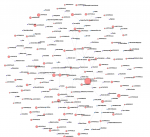Karen Miga Fills In the Missing Pieces of Our Genome
Driven by her fascination with highly repetitive, hard-to-read parts of our DNA, Karen Miga led a coalition of researchers to finish sequencing the human genome after almost two decades.
Driven by her fascination with highly repetitive, hard-to-read parts of our DNA, Karen Miga led a coalition of researchers to finish sequencing the human genome after almost two decades.
In 1990, an international team of scientists began an ambitious attempt to sequence the human genome. By 2001 the Human Genome Project (HGP) had prepared a rough draft, and in April 2003, the draft sequence was declared finished. But Karen Miga, a geneticist now at the University of California, Santa Cruz and the associate director of the UCSC Genomics Institute, knew that while the work might have wrapped up, the sequencing was far from complete.
When the draft genome was published in 2001, how much was actually finished?
The very first draft sequence was an incredible resource, but it intentionally ignored the more complex, densely repetitive regions of our genome. Later efforts to get to a more finished state had about 8-10% still missing, and we kept hitting a technological wall to reach completion. In part this was due challenges in sequencing the repeats, but it is important to remember that even if the sequencing was perfect, we would still be faced with the obstacle of correctly putting those pieces together.
I feel like I am one of a small group of scientists who have been standing on our soapboxes for many years, saying, “Hey, our current maps are incomplete, and completing our maps will be important to our understanding of genome biology.” I suspect that many will be surprised to learn this, due to the very public celebration of the “finished” human genome in 2003. We were celebrating the completion of the parts of our genome that were technologically feasible at the time. It wasn’t really clear to the public how much of our genome was left unresolved and unexplored.
https://www.quantamagazine.org/karen-miga-fills-in-the-missing-pieces-of-our-genome-20210908So it’s not like the T2T preprint genome is just topping off the previous human genome reference with a last few details. It’s more like there’s a whole chunk of our genome that operates in a different way just becoming available to us, and we have only begun to scratch the surface of that. The next 10 years should be very exciting, and I look forward to the future discoveries in these newly revealed regions.
Last edited:

